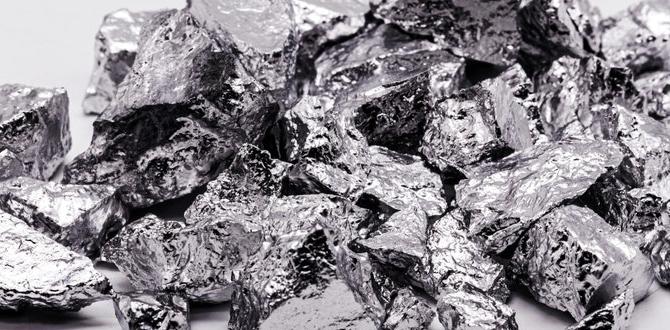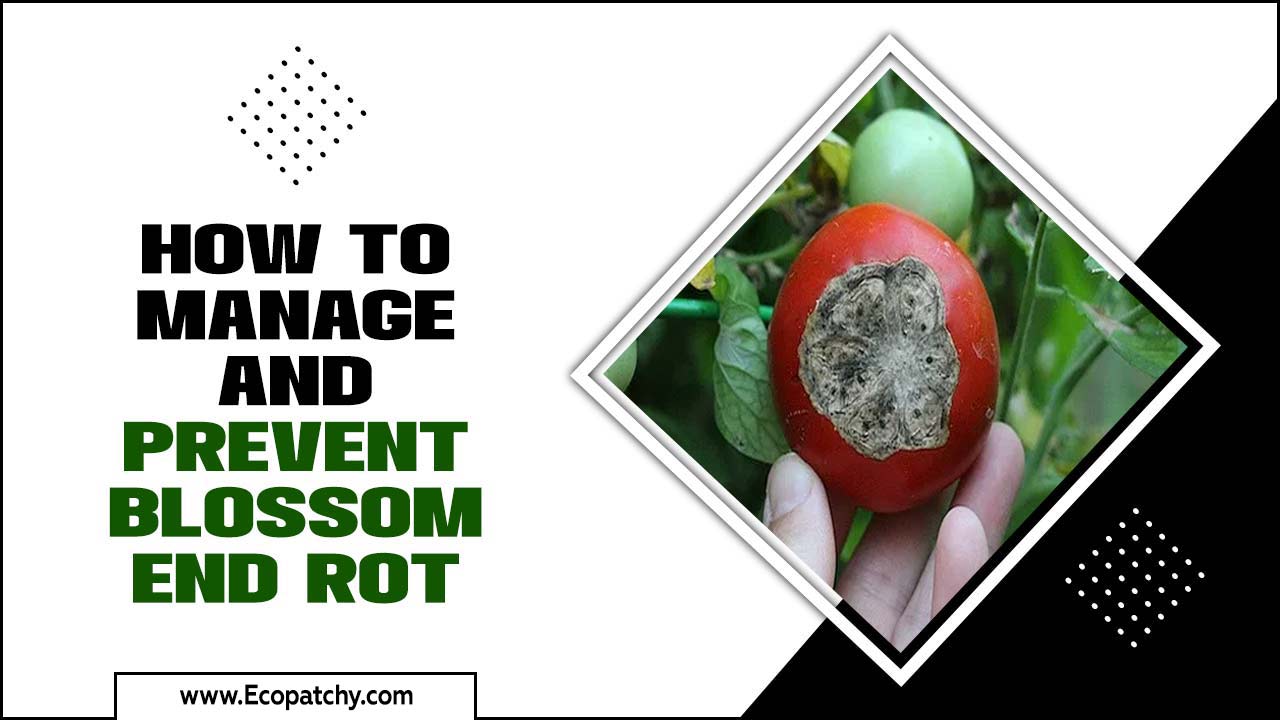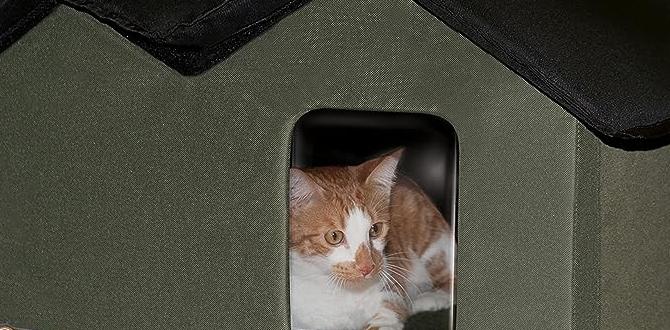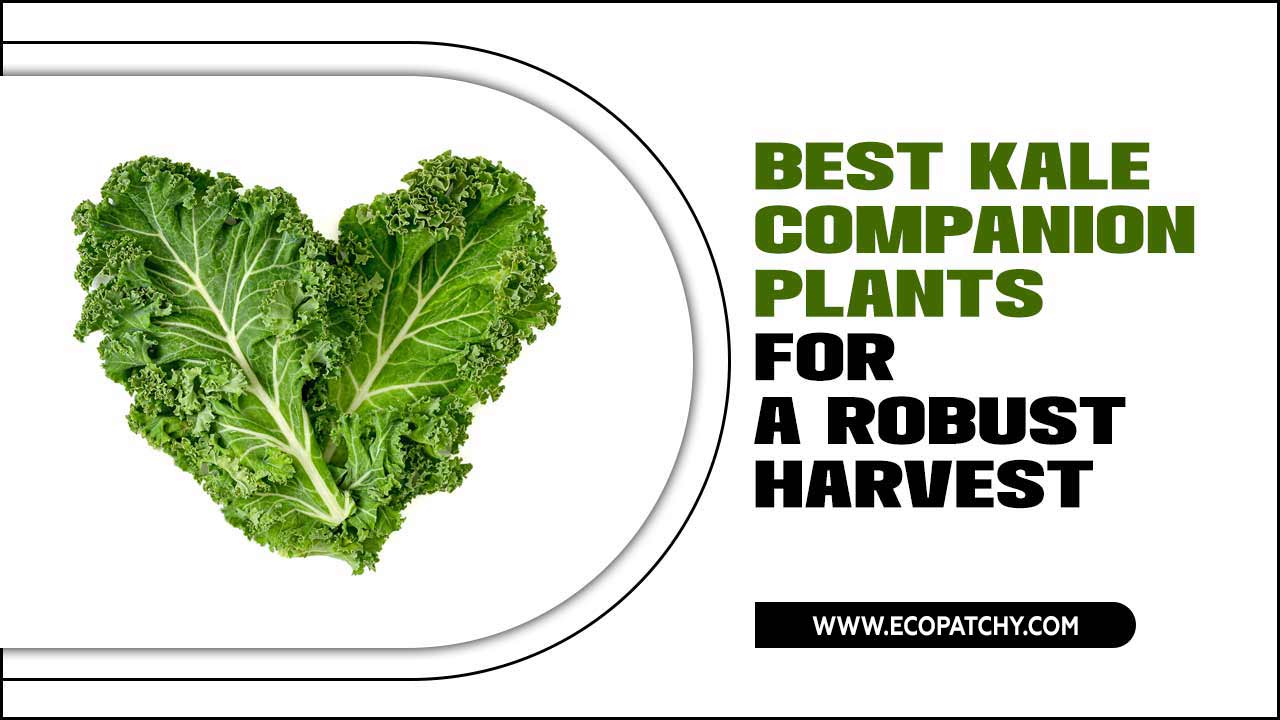Have you ever wondered how some gardens look extra lush and vibrant? Many gardeners swear by a simple ingredient: aluminum sulfate. This compound is not just a complicated scientific term. It plays an important role in many gardens.
Here’s a fun fact: aluminum sulfate can help change the color of hydrangeas! If you add it to the soil, some flowers can turn from pink to blue. Isn’t that amazing? Imagine surprising your friends with colorful blooms that change just by using one product.
But what exactly does aluminum sulfate do for plants? It helps lower soil pH, making it great for acid-loving plants. This means that plants like blueberries and azaleas can thrive even more.
So, the next time you think about your garden, consider aluminum sulfate. It might be the secret ingredient you’ve been missing!
Aluminum Sulfate For Gardening: Boost Soil Ph And Health
Aluminum Sulfate for Gardening
Aluminum sulfate is a gardener’s friend. It helps lower soil pH, making it perfect for acid-loving plants like azaleas and rhododendrons. Did you know it can also enhance color in hydrangeas? Adding this compound can deliver a vibrant blue hue. However, using it properly is crucial. Too much aluminum sulfate can harm your plants. Always follow application guidelines to ensure your garden flourishes naturally. Experiment with it this season and watch your blooms thrive!What is Aluminum Sulfate?
Definition and chemical composition. Common uses in various industries.Here’s a fun fact: aluminum sulfate is a compound made from aluminum, sulfur, and oxygen. It looks like tiny white crystals. In many industries, it shines bright! It’s often used in water treatment, food processing, and even gardening. People sprinkle it to help plants absorb nutrients better. Think of it like giving your plants a special energy boost. Fun fact—less than 1% of it can change the pH of soil! Who knew a little can do so much?
| Industry | Use |
|---|---|
| Water Treatment | Purifies drinking water |
| Food Processing | Acts as a firming agent |
| Gardening | Lowers soil pH |
Benefits of Aluminum Sulfate in Gardening
Soil pH adjustment and its importance. Enhancing nutrient absorption for plants.Gardening success starts with the soil! Aluminum sulfate helps adjust soil pH, making it more acidic. This is important because many plants thrive in that environment. The right pH lets plants drink up nutrients better, like a kid slurping milkshake through a straw. When nutrients are absorbed efficiently, plants grow lush and green. Imagine a plant wearing sunglasses, enjoying the sunshine!
| Benefits | Description |
|---|---|
| Soil pH Adjustment | Improves acidity for better plant health |
| Nutrient Absorption | Helps plants soak up essential nutrients |
How to Use Aluminum Sulfate for Gardening
Recommended application rates. Methods of application (granules, solutions, etc.).To improve your soil with aluminum sulfate, careful application is key. Here are some suggested rates and methods:
- For gardens: 1 to 2 pounds per 100 square feet.
- For container plants: 1 tablespoon per gallon of soil.
You can apply it in two ways:
- Granules: Spread evenly on the soil surface.
- Solutions: Mix with water and pour directly at the base of plants.
This helps plants absorb nutrients better. Always water the area well after applying.
How often should aluminum sulfate be applied?
The best times are early spring or fall, but it depends on your soil. Check your soil’s pH regularly for best results.
Plants That Benefit from Aluminum Sulfate
Acidloving plants and their requirements. Specific examples of flowers and vegetables.Some plants absolutely love acidic soil, and aluminum sulfate helps make that happen. These plants, known as acid-loving plants, thrive in a lower pH environment. Take, for example, flowers like azaleas and rhododendrons; they’re like the party animals of the garden! Vegetables like blueberries and potatoes also enjoy this acidic playground. If you want your garden to be the best club in town for these plants, aluminum sulfate is your bouncer. Here’s a snapshot of some favorites:
| Plant Type | Examples |
|---|---|
| Flowers | Azaleas, Rhododendrons |
| Vegetables | Blueberries, Potatoes |
Safety Precautions When Using Aluminum Sulfate
Handling and storage tips. Potential risks to humans and pets.
Using aluminum sulfate can be helpful for your garden, but safety is key! Always wear gloves and a mask. This keeps the powder off your hands and out of your nose. Store it in a cool, dry place and away from pets. Speaking of pets, they might think aluminum sulfate is a new toy. Bad idea! It can be harmful if ingested. Here’s a quick look:
| Safety Tip | Description |
|---|---|
| Wear protective gear | Use gloves and masks to avoid contact and inhalation. |
| Safe storage | Keep it in a cool, dry spot, away from pets and kids. |
| Emergency plan | Know what to do if accidental ingestion happens. |
Always follow the instructions on the label. Better safe than sorry, right? Humor aside, being cautious helps everyone, including your adorable furry friends!
Alternatives to Aluminum Sulfate in Gardening
Other soil amendments for pH adjustment. Organic options for gardeners.If you’re looking for ways to tweak your soil’s pH without using aluminum sulfate, there are plenty of other options. Organic materials like compost, pine needles, or even coffee grounds can be your best friends for this task. Compost not only adjusts pH but also adds nutrients. Pine needles slowly acidify your soil, and coffee grounds are like little magic beans for your garden!
| Amendment | Effect on pH |
|---|---|
| Compost | Balances pH and enriches soil |
| Pine Needles | Increases acidity over time |
| Coffee Grounds | Gently acidifies soil |
These options are not only eco-friendly but also fun to use! Remember, gardening should be a joy, not a chore. Stick with these natural amendments, and you’ll have happy plants and a happy you!
DIY Soil Testing Before Using Aluminum Sulfate
Importance of soil testing. How to test soil pH and interpret results.Testing your soil is very important before using any amendments like aluminum sulfate. It helps you understand your soil’s pH level. A proper pH ensures plants receive the right nutrients. You can easily test your soil at home. You’ll need a soil sample, distilled water, and a pH test kit. Mix them according to instructions and check the results. A pH between 6.0 and 7.0 is usually best for gardening.
How do I test my soil pH?
You can test your soil pH using a home test kit or strips. Simply follow the instructions that come with the kit.
- Collect soil samples from different areas.
- Mix the sample with distilled water and let it settle.
- Use the kit to find the pH level.
What do the results mean?
Understanding your results is key. If your pH is too low (below 6.0), your soil is acidic. If it’s too high (above 7.0), it’s alkaline. Adjust as needed with amendments.
Common Mistakes to Avoid with Aluminum Sulfate
Overapplication and its effects. Misunderstanding soil pH and plant needs.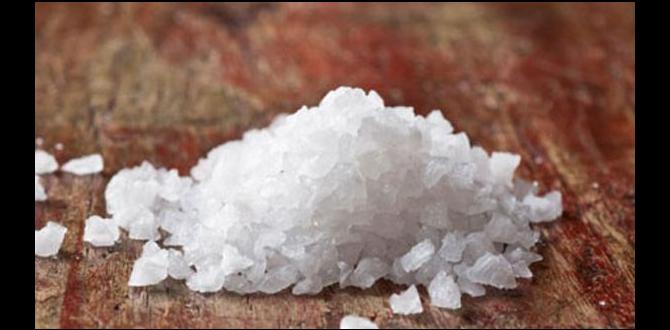
Adding aluminum sulfate can help your garden, but using too much can lead to trouble. Overapplication can cause *plant stress* and might even kill them. Always read the label! Many gardeners misunderstand how soil pH works and think it’s a magic fix. Remember, soil and plant needs are unique! Always test your soil first. Here’s a quick table to avoid common mistakes:
| Mistake | Effect |
|---|---|
| Overapplication | Plants can suffer or die. |
| No soil test | Wrong pH and unhappy plants. |
Conclusion
In summary, aluminum sulfate helps make soil acidic, which is great for plants like blueberries. It also improves drainage and overall soil health. You can easily use it in your garden for better results. If you want to learn more, check gardening websites or ask local experts. Let’s make our gardens thrive together!FAQs
What Is Aluminum Sulfate, And How Does It Benefit Plant Growth In Gardening?Aluminum sulfate is a special powder we use in gardening. It helps plants grow better by making the soil more acidic. Some plants, like blueberries and azaleas, love this type of soil. When you add it to your garden, your plants can get more nutrients and stay healthy!
How Can Aluminum Sulfate Be Used To Adjust Soil Ph For Specific Plants?You can use aluminum sulfate to make the soil more acidic. Some plants, like blueberries, need this to grow well. When you add aluminum sulfate to the soil, it lowers the pH, making it better for these plants. Just follow the instructions on the package to find the right amount. Always check how your plants are doing after adding it!
What Are The Potential Risks Or Side Effects Of Using Aluminum Sulfate In The Garden?Using aluminum sulfate in the garden can have some risks. It may hurt plants if you use too much. The soil can become too acidic, which some plants don’t like. It can also harm helpful bugs and worms in the soil. Always follow the directions carefully to keep your garden safe!
How Should Aluminum Sulfate Be Applied To Soil For Optimal Results?To use aluminum sulfate in your soil, first check the soil’s pH. You can mix it with water to create a solution. Then, spread this solution evenly over your garden or yard. Make sure to water the soil afterward to help the aluminum sulfate work better. Always follow the instructions on the package for the best results.
Are There Alternative Substances To Aluminum Sulfate For Achieving Similar Gardening Results?Yes, there are alternatives to aluminum sulfate. You can use elemental sulfur to lower soil pH. Another option is iron sulfate, which also helps make soil more acidic. People sometimes use coffee grounds or pine needles too. These options can help your plants grow better!
{“@context”:”https://schema.org”,”@type”: “FAQPage”,”mainEntity”:[{“@type”: “Question”,”name”: “What Is Aluminum Sulfate, And How Does It Benefit Plant Growth In Gardening? “,”acceptedAnswer”: {“@type”: “Answer”,”text”: “Aluminum sulfate is a special powder we use in gardening. It helps plants grow better by making the soil more acidic. Some plants, like blueberries and azaleas, love this type of soil. When you add it to your garden, your plants can get more nutrients and stay healthy!”}},{“@type”: “Question”,”name”: “How Can Aluminum Sulfate Be Used To Adjust Soil Ph For Specific Plants? “,”acceptedAnswer”: {“@type”: “Answer”,”text”: “You can use aluminum sulfate to make the soil more acidic. Some plants, like blueberries, need this to grow well. When you add aluminum sulfate to the soil, it lowers the pH, making it better for these plants. Just follow the instructions on the package to find the right amount. Always check how your plants are doing after adding it!”}},{“@type”: “Question”,”name”: “What Are The Potential Risks Or Side Effects Of Using Aluminum Sulfate In The Garden? “,”acceptedAnswer”: {“@type”: “Answer”,”text”: “Using aluminum sulfate in the garden can have some risks. It may hurt plants if you use too much. The soil can become too acidic, which some plants don’t like. It can also harm helpful bugs and worms in the soil. Always follow the directions carefully to keep your garden safe!”}},{“@type”: “Question”,”name”: “How Should Aluminum Sulfate Be Applied To Soil For Optimal Results? “,”acceptedAnswer”: {“@type”: “Answer”,”text”: “To use aluminum sulfate in your soil, first check the soil’s pH. You can mix it with water to create a solution. Then, spread this solution evenly over your garden or yard. Make sure to water the soil afterward to help the aluminum sulfate work better. Always follow the instructions on the package for the best results.”}},{“@type”: “Question”,”name”: “Are There Alternative Substances To Aluminum Sulfate For Achieving Similar Gardening Results? “,”acceptedAnswer”: {“@type”: “Answer”,”text”: “Yes, there are alternatives to aluminum sulfate. You can use elemental sulfur to lower soil pH. Another option is iron sulfate, which also helps make soil more acidic. People sometimes use coffee grounds or pine needles too. These options can help your plants grow better!”}}]}
